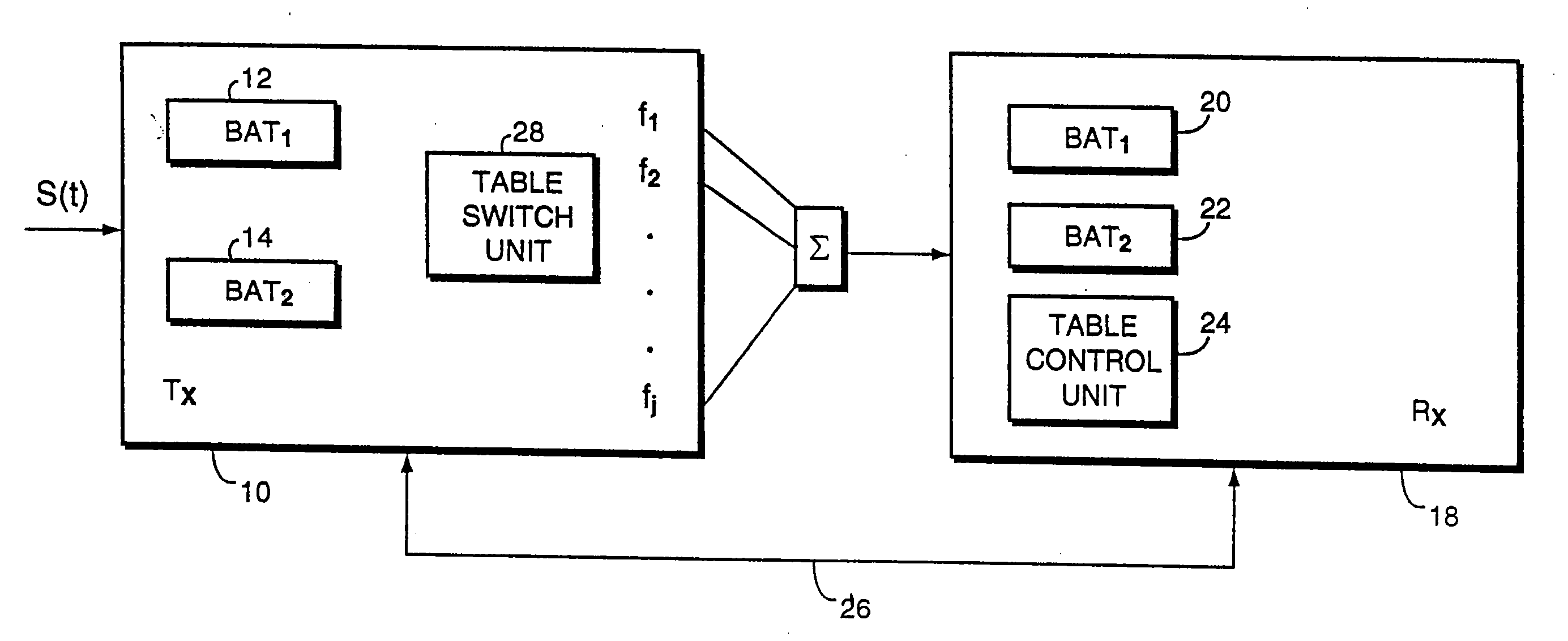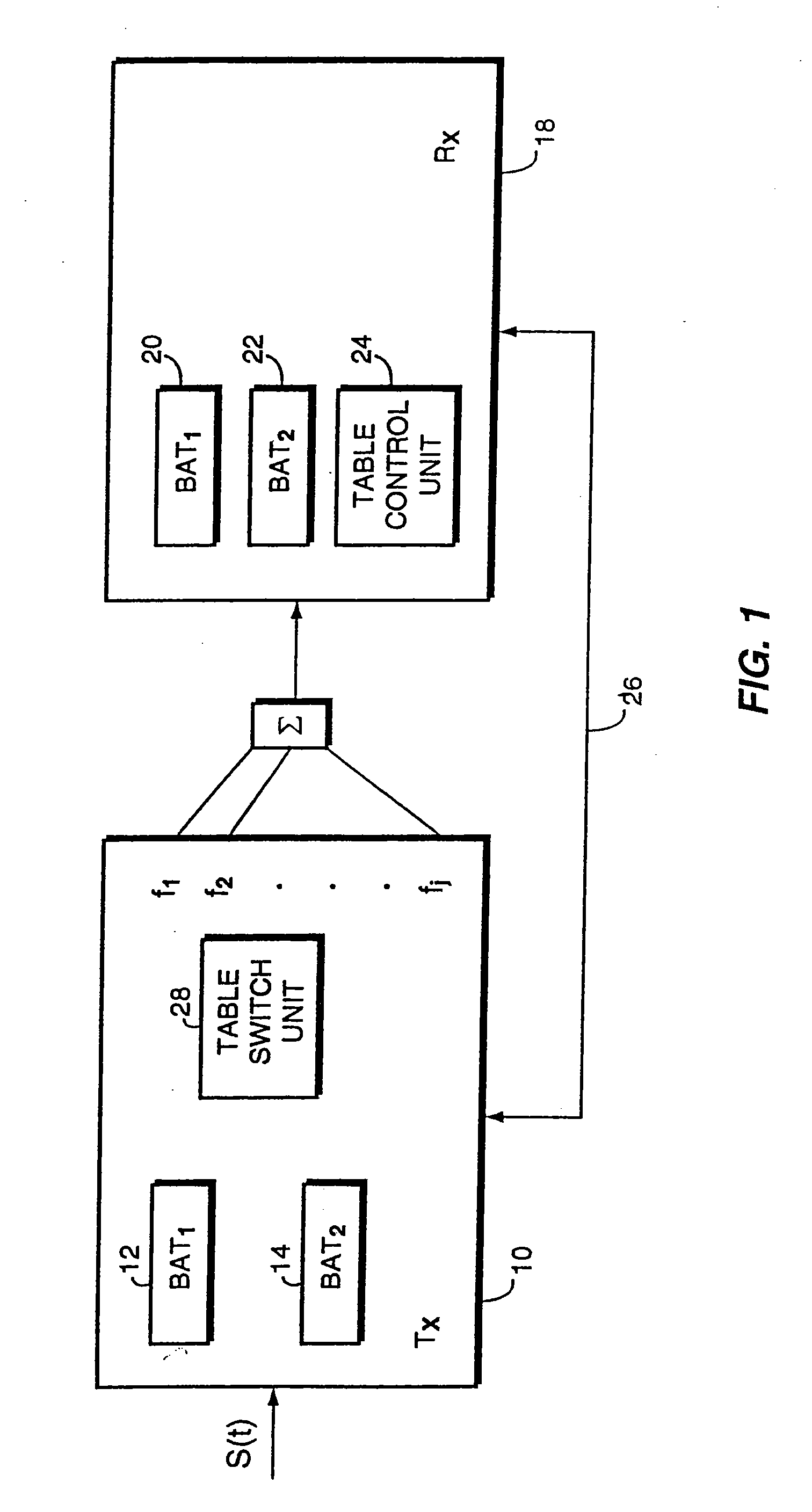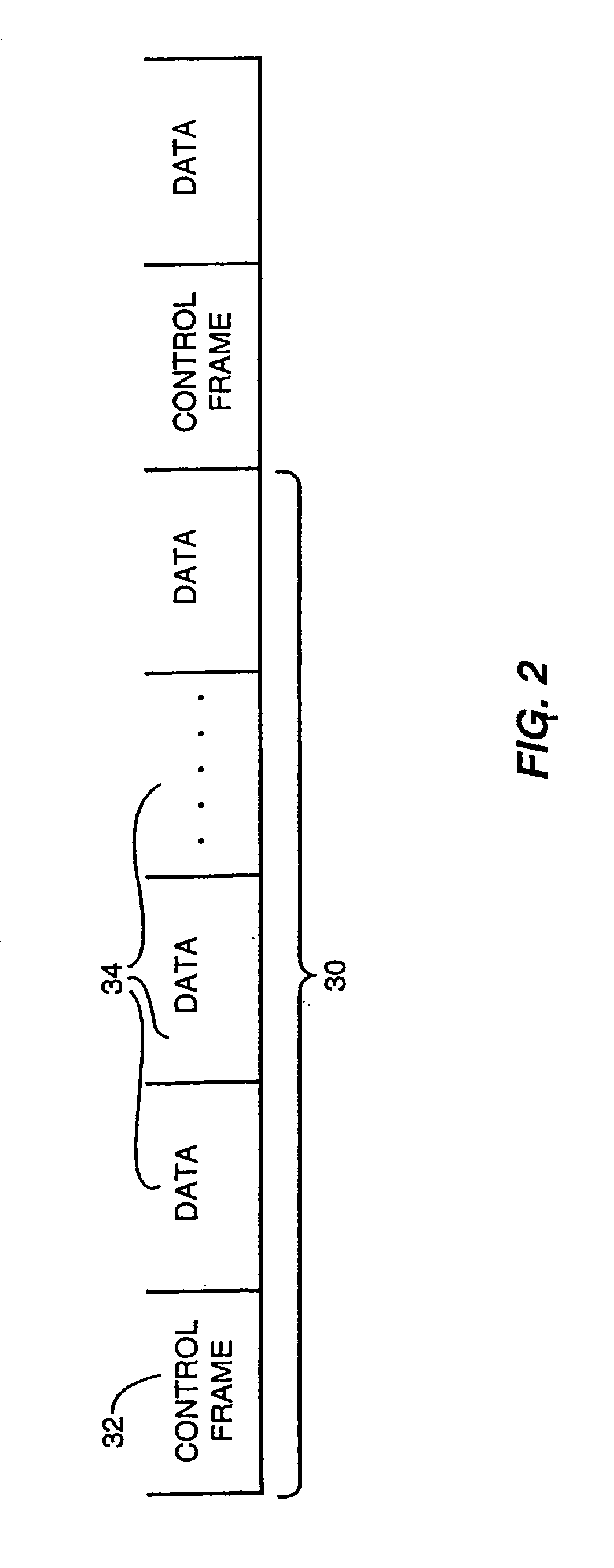Adaptive Allocation For Variable Bandwidth Multicarrier Communication
a multi-carrier communication and adaptive allocation technology, applied in multiplex communication, orthogonal multiplex, wireless communication, etc., can solve the problems of not communicating data, communication link will suffer significant errors, and recalculating the bit allocation table for a relatively long time is undesirable, and the effect of not communicating data
- Summary
- Abstract
- Description
- Claims
- Application Information
AI Technical Summary
Benefits of technology
Problems solved by technology
Method used
Image
Examples
Embodiment Construction
[0028] In FIG. 1, a transmitter 10 for use in asynchronous data subscriber loop (ADSL) communications has first and second bit allocation tables 12 and 14 for use in assigning data to a plurality of channels for transmission to a remote receiver 16 which has corresponding bit allocation tables 20 and 22. The tables operate in pairs under control of a table controller 24 at the transmitter. In accordance with ADSL practice, a digital signal s(t) to be transmitted to a receiver is distributed over a plurality of channels f1, f2, . . . fj, in accordance with channel allocation assignments stored in the bit allocation tables. In particular, the tables B[j] define, for each channel j, the number of bits that can reliably be transmitted over a particular channel at a given bit error rate at the specific signal to noise ratio measured for that channel. These tables are determined as described in detail herein, and may vary from time to time during the course of a transmission.
[0029] At an...
PUM
 Login to View More
Login to View More Abstract
Description
Claims
Application Information
 Login to View More
Login to View More - R&D
- Intellectual Property
- Life Sciences
- Materials
- Tech Scout
- Unparalleled Data Quality
- Higher Quality Content
- 60% Fewer Hallucinations
Browse by: Latest US Patents, China's latest patents, Technical Efficacy Thesaurus, Application Domain, Technology Topic, Popular Technical Reports.
© 2025 PatSnap. All rights reserved.Legal|Privacy policy|Modern Slavery Act Transparency Statement|Sitemap|About US| Contact US: help@patsnap.com



